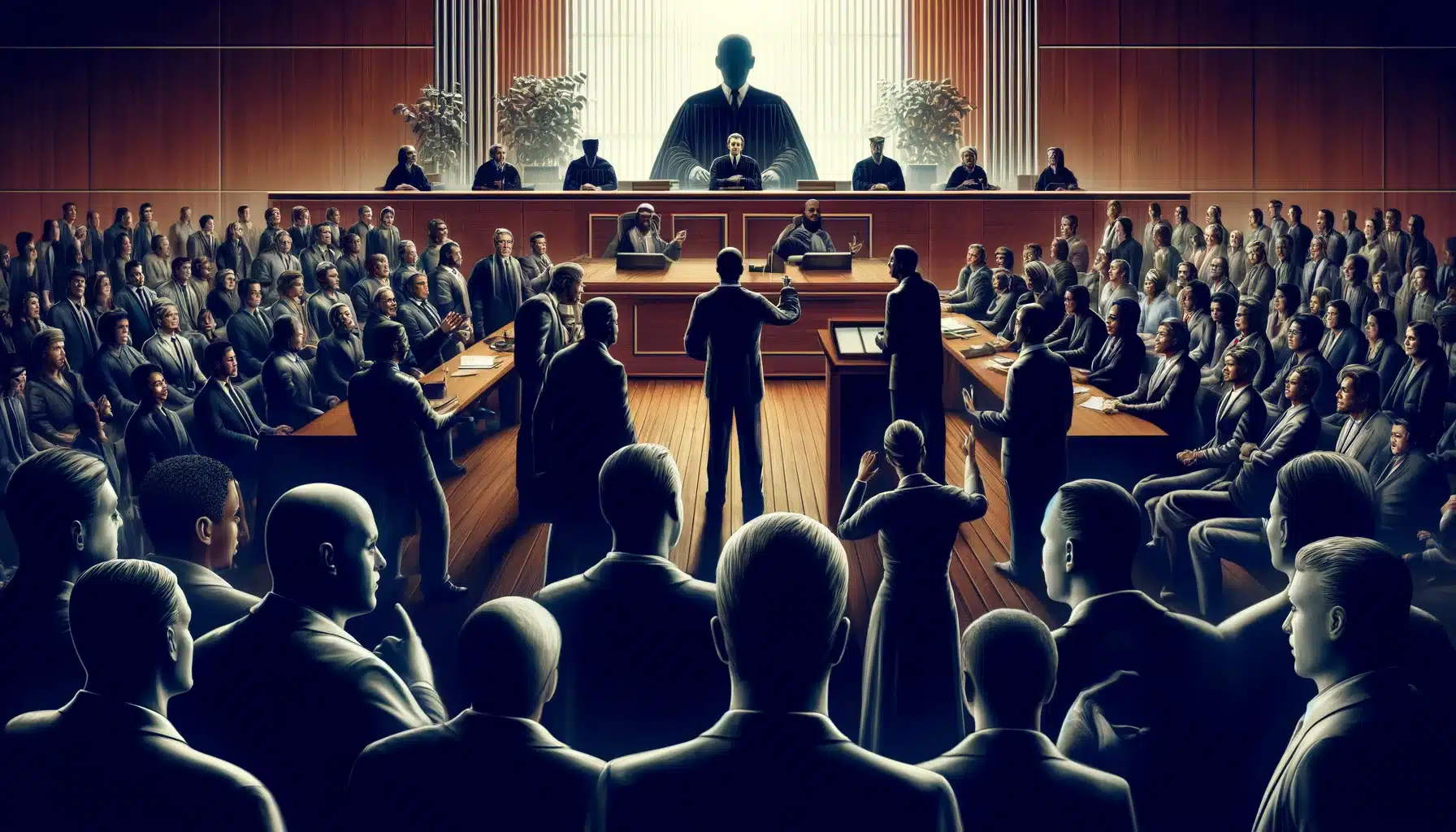In “Refusal By Bar To Defend Certain Accused,” the legal profession grapples with ethical dilemmas when lawyers collectively refuse to defend certain individuals accused of heinous crimes. This refusal raises questions about the right to a fair trial, the duty of the legal profession to provide defe

AI that prepares briefs and compliance checklists
The right to legal representation is a cornerstone of any just legal system. However, this right is at risk when a bar association thinks about not defending certain types of accused people. While the reasons for this may make sense, the ethical and legal issues involved are complicated. In a fair and equitable society, every person accused of a crime has a basic entitlement to legal representation. This right is protected by the Indian Constitution and supported by the Bar Council of India. Nevertheless, there have been examples/ cases when bar associations have adopted resolutions declining to represent specific groups of accused individuals, such as terrorists or rapists.
The Right To Defense: A Constitutional Obligation
Article22(1) of the Indian Constitution ensures every individual’s right to be represented by a legal practitioner of their choice, which is crucial for ensuring a just trial. It is unreasonable to expect an accused person to navigate the complexities of the legal system without professional guidance. The Supreme Court of India has consistently underscored this right in landmark cases such as Mohammed Rafi v. State of Tamil Nadu, 20101. The court ruled that lawyers have to defend even rapists; refusal is illegal. The Court criticized the practice of bar associations limiting lawyers from accepting cases, labelling such resolutions as “contrary to constitutional norms, statutory provisions, and professional ethics.” The judgment emphasized the lawyer’s role as an “officer of the court” responsible for upholding the integrity of the legal system.
Justifiable Reasons For Refusal
While the right to defense is of utmost importance, there may be specific circumstances where exceptions could be considered. A lawyer might have legitimate grounds to decline a case, including:
- Conflict of interest: If the lawyer has represented the victim in the past or has a personal relationship with a party to the case. The Advocates Act, 1961 and the Bar Council of India Rules establish guidelines to prevent conflicts of interest and ensure lawyer independence. Section 35 of the Advocates Act, 1961 empowers the State Bar Council to initiate disciplinary proceedings against lawyers who violate professional norms. Such violations can include taking a case that conflicts with a previous client’s representation or involves a personal relationship with a party to the current case.
For instance, in V.C. Rangadurai v. D. Gopalan (1979)2 The Madras High Court emphasized the importance of avoiding conflicts of interest to uphold the integrity of legal representation.
- Workload management: A heavy caseload is a justifiable reason for a lawyer to refuse a new case. While Indian courts don’t have specific case laws addressing workload as a reason to decline the case, ethical guidelines require lawyers to provide competent representation. It is the duty of the lawyers to diligently represent their clients, implying that responsible workload management is crucial for effective representation.
- Ethical Dilemmas and Potential Illegality: Lawyers are sworn to uphold the law and abide by ethical codes. This can create a conflict if a lawyer suspects their client’s case involves potential criminal activity. While Section 126 of the Indian Evidence Act safeguards the confidentiality of lawyer-client communications, it doesn’t extend to aiding illegal acts. In such situations, a lawyer may be justified in refusing the case to avoid violating their ethical obligations.
- Lack of expertise: If the case is outside the lawyer’s specialized field. In Sushi’ Kumar Sharma v. Union of India (2005)3 The Court emphasized that lawyers should not undertake matters beyond their area of expertise, as it could compromise the quality of legal services.
- Undue hardships: Lawyers facing threats to their safety or well-being may potentially refuse a case under principles of personal safety and ethical obligations. Ethical guidelines and legal standards recognize that a lawyer’s safety is paramount. Therefore, lawyers facing threats may potentially refuse a case to protect themselves, without compromising their commitment to upholding the law.
- Declining a case based on type of crime or presumed guilt: In India, the Constitution guarantees the right to legal representation for all accused individuals. The Supreme Court in Hussainara Khatoon v. State of Bihar (1979)4 affirmed that legal aid and defense are essential rights, regardless of the nature or severity of the alleged crime.
Declining to provide a defense solely due to the type of crime or presumed guilt of the accused is not an acceptable justification.
Ethical Responsibilities And The Role Of The Bar Council
Lawyers are governed by ethical standards that require them to uphold the law and safeguard their clients’ rights. Declining to provide defense based on personal beliefs undermines these responsibilities. The Bar Council plays a critical role in maintaining ethical standards and has the authority to take disciplinary action against lawyers who breach these principles.
Conclusion
Legal representation is crucial for a fair legal system. However, while lawyers may have valid reasons for turning down a case, these reasons should not be used to deny an accused person their basic right to a fair trial. It is the responsibility of the courts and the Bar Council to ensure that everyone, regardless of the accusations against them, can access legal defense.


